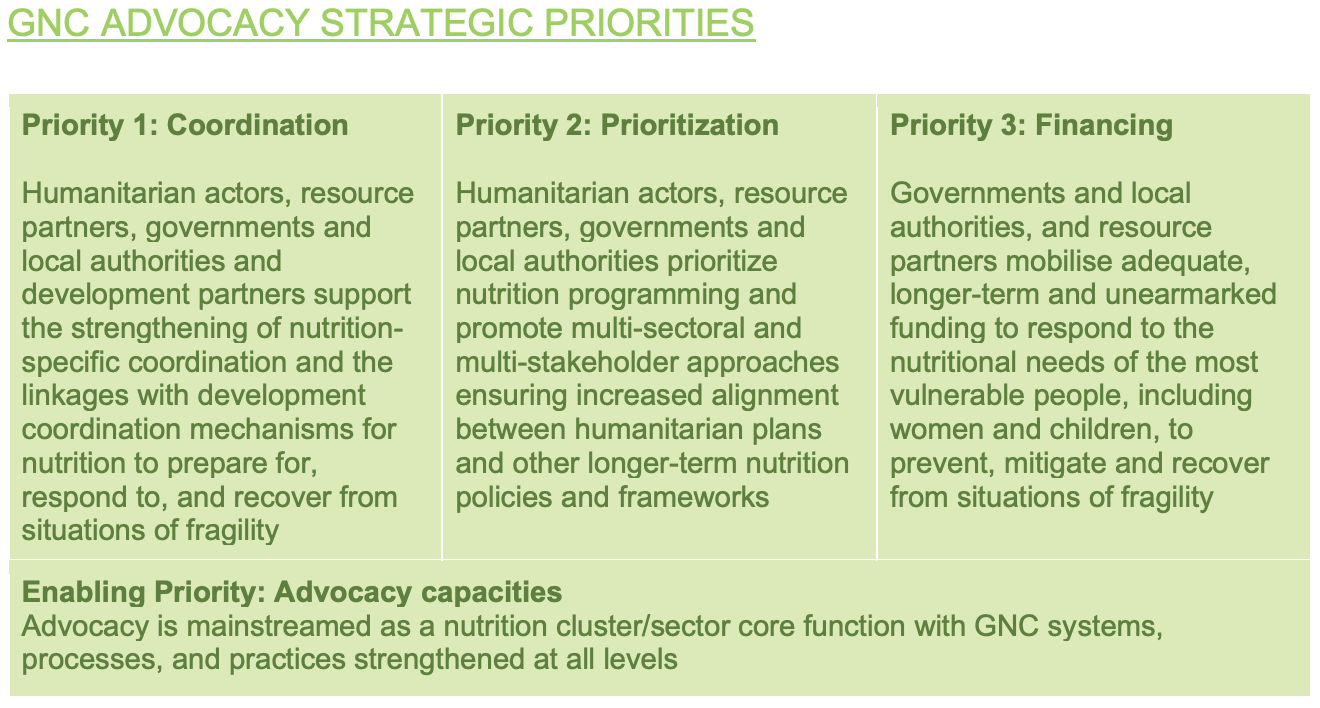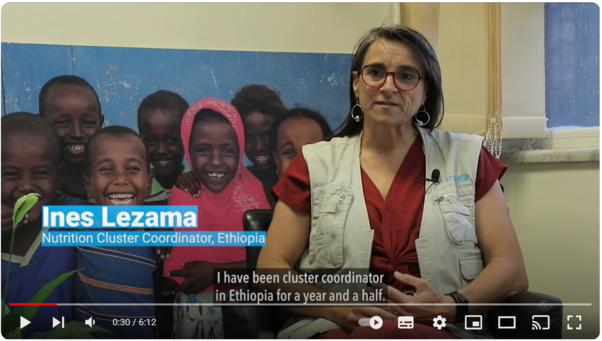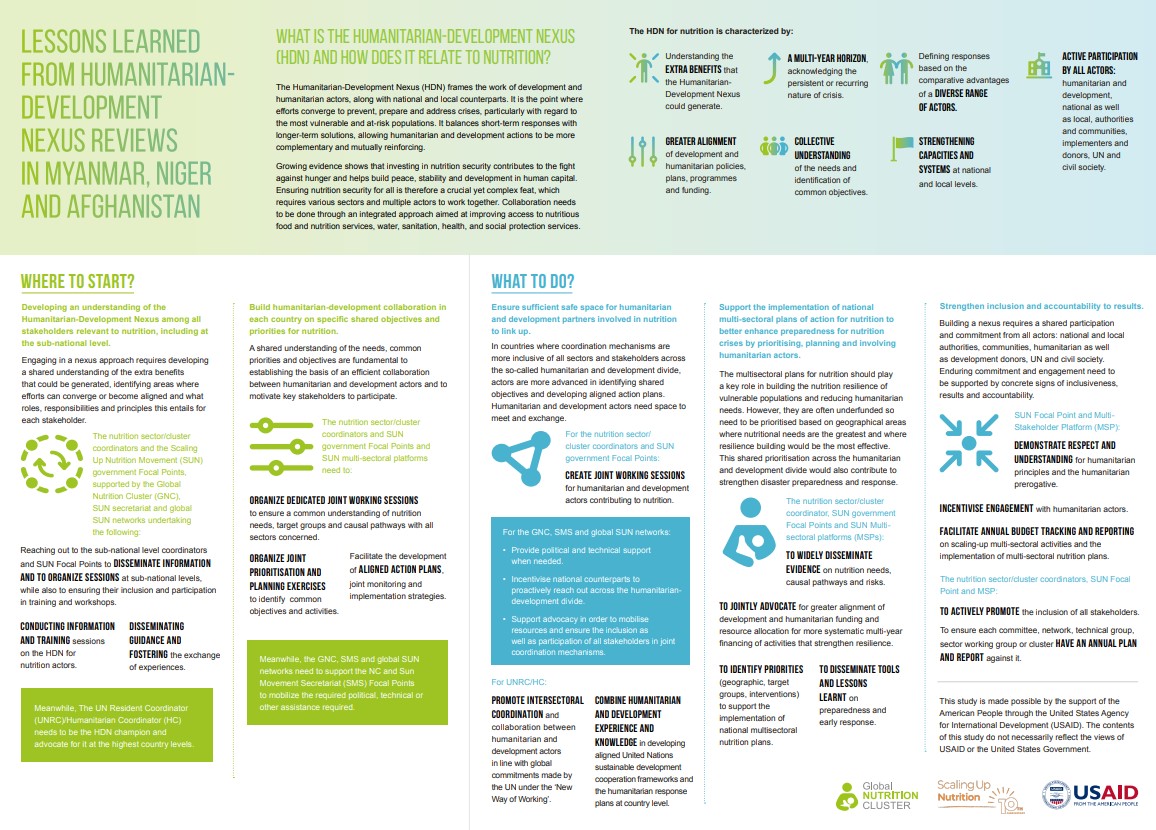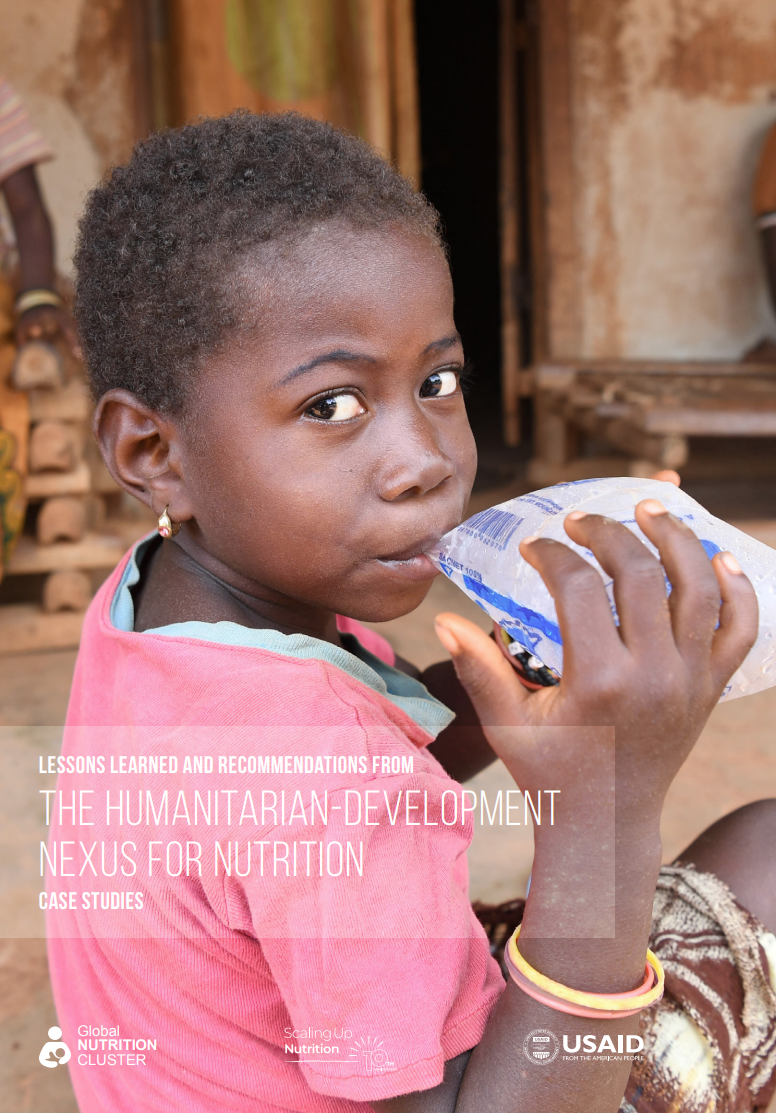Our advocacy priorities for improved humanitarian outcomes
With operational responses to all major humanitarian crises worldwide, Nutrition Cluster partners have access to information about the scope of impact and the response to nutrition crises. This information can - and should - be used to inform and influence decision-making at all levels by identifying gaps and bottlenecks and proposing solutions to problems that programs alone cannot solve.
To realise this vision, the GNC has included advocacy as a strategic priority since 2014 and seeks to work across all levels and sectors, linking humanitarian and development actors, including partners, to jointly build an enabling financial and policy environment. This aims to ensure the nutrition response in contexts of fragility is appropriate, timely and at a scale (see: 2022-2025 GNC Global Strategy).
To support this, the 2022-2025 Advocacy Strategy further identifies three interlinked priorities: strengthening nutrition coordination, prioritization, and financing in situations of fragility to prepare for, respond to, and recover from, shocks to the nutrition situation, thereby supporting global efforts to prevent and treat malnutrition in all its forms.

The Importance of Nutrition Cluster Coordination
Manuel Fontaine, Director of UNICEF’s Office of Emergency Programmes (EMOPS), recently visited Türkiye and north-west Syria to meet communities affected by the earthquakes that hit the region in April 2023. In the below video, he highlights the importance of coordination as the most important contribution to ensure all efforts carry the best support to people.
GNC encourages all country clusters and working groups to develop a national Nutrition in Emergencies (NiE) advocacy strategy and plans to support delivery of their mission. Below you can find useful resources to guide this work. In addition, all nutrition partners interested in contributing to the strategic development and strengthening of GNC advocacy are also invited to join the GNC Advocacy and Communication Working Group.
Watch Ines Lezama, Ethiopia Nutrition Cluster Coordinator, speaking about her first hand experience as a coordinator and the importance of coordination for an effective and efficient humanitarian response. "Coordination is a central force but a hidden force. It links all management functions. It is essential to save lives and to provide response to affected populations in a timely and efficient manner.”

How to advance your Nutrition Cluster Advocacy
We have two key resources to help you improve your advocacy skills: the Nutrition Cluster Advocacy toolkit and advocacy modules through our e-learning platform GNC Learn.
To learn all about Nutrition Cluster Advocacy through GNC Learn, visit the GNC platform and create a free account – it will take you less than a minute! Once on the platform, click the Nutrition Cluster Coordination Catalogue. This catalogue has 19 different chapters designed to align with the functional competencies of the Cluster Coordination Competency Framework, including three specific modules on How to Advocate for Improved Humanitarian Outcomes for different competency levels:
- Level 1: This is an introduction to Nutrition Cluster Advocacy to help you learn the basics of how to identify targets and craft key advocacy messages. This level is targeted at colleagues working as Cluster Coordinators in national or subnational clusters in a non-complex environment.
- Level 2: This module will teach you how to develop and implement a Nutrition Cluster Advocacy Strategy, create a workplan and a budget, and also how to mainstream AAP (Accountability to Affected Populations) into Cluster Advocacy. This level is targeted at colleagues working as Cluster Coordinators in more complex environments in national or large subnational clusters.
- Level 3: The highest level will teach you about Monitoring and Evaluating Nutrition Cluster Advocacy activities, and also how to advocate to both senior national and international leadership in complex situations, and in COVID-19/other pandemic contexts. This level is targeted at Cluster Coordinators working in highly complex environments, such as in a system-wide scale up emergency or at global level.
Additional resources
- 2022 - 2025 GNC Advocacy Strategy
- GNC Advocacy and Communication Working Group ToR
- Nutrition Cluster Advocacy toolkit
- Advocacy Note: Nutrition coordination in humanitarian settings
- Advocacy 10 step plan
- Process to develop an advocacy note
Please contact us if you would like any of the resources in Word format.


